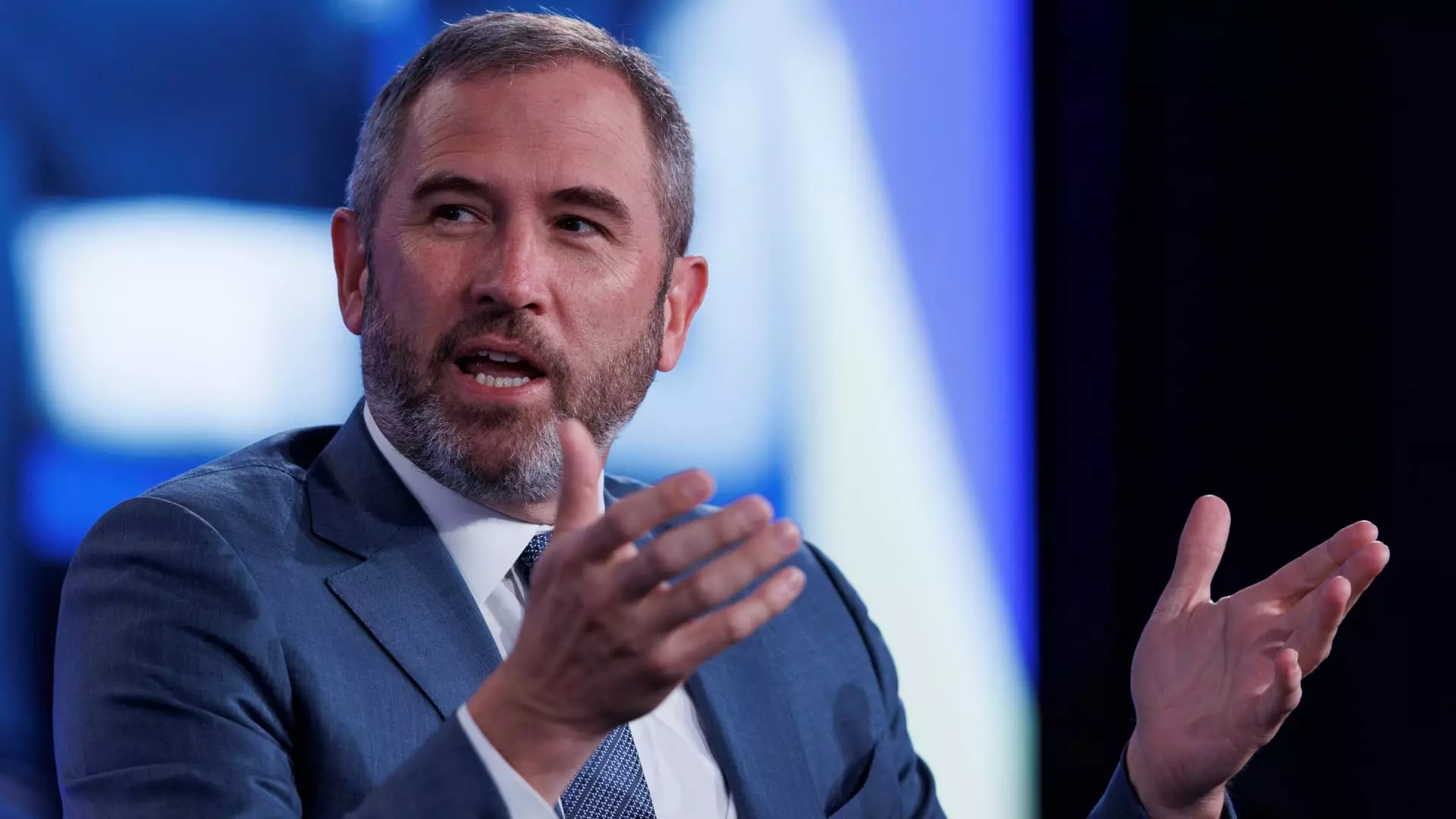In recent discussions surrounding the future of cryptocurrency regulation in the United States, Ripple Labs CEO Brad Garlinghouse has emerged as a voice of cautious optimism. Despite previous skepticism towards regulatory measures emanating from Washington, Garlinghouse believes that the impending elections will pave the way for a more crypto-friendly legislative environment. His assertion that “this is the most important election we’ve had” reflects a pivotal moment for the industry, as he envisions a Congress that will champion innovation and support for digital currencies.
Ripple Labs, known for its pioneering contributions to the crypto space with its XRP token, operates predominantly outside the U.S., with about 95% of its business transactions conducted internationally. This statistic serves as an indictment of the contentious regulatory climate that has indirectly driven Ripple to diversify its operations globally. The backdrop of Garlinghouse’s optimism is underscored by Ripple’s legal battles, particularly the landmark court ruling that deemed XRP not a security when traded on exchanges—an outcome that galvanized the industry and contrasted sharply with the U.S. Securities and Exchange Commission’s earlier position.
Garlinghouse’s advice for fintech startups is straightforward yet critical: “Incorporate outside the United States.” This guidance stems from his recognition of the significant hurdles posed by U.S. regulatory bodies, which he implies may hinder innovation and entrepreneurial spirit in the domestic market. Such a stance not only reflects a pragmatic approach for those in the cryptocurrency landscape but also reveals the depth of discontent within the industry regarding regulatory overreach. For many startups, the potential benefits of relocating may outweigh the risks associated with the lingering uncertainty of U.S. regulatory frameworks.
Despite these challenges, Garlinghouse maintains a long-term positive outlook for the crypto industry. He argues that the trajectory of innovation and acceptance is inevitable, and projects that in a decade, the narratives around U.S. regulatory missteps will serve as a reminder of how critical decisions can shape an industry’s future. The idea that the current turbulence can be viewed as a “speed bump” reinforces his belief in the resilience and adaptability of the crypto sector.
In an effort to bolster the pro-crypto cause, Ripple Labs has made significant financial contributions to political action committees that advocate for cryptocurrency. Garlinghouse noted that the company has contributed approximately $45 million to the Fairshake PAC, and co-founder Chris Larsen recently made headlines by donating $11 million to Vice President Kamala Harris’ campaign. This engagement underscores the increasing partisan divide within the crypto community, as pro-crypto sentiments are now aligned with specific political figures—especially in light of contrasting attitudes toward cryptocurrency regulation.
Garlinghouse drew attention to the polarizing nature of recent political stances on crypto, remarking on how former President Donald Trump’s explicit support for the industry has been counterbalanced by the more nuanced position of the Biden administration. While he acknowledged Harris’ historical connection to Silicon Valley and her pro-technology stance, he expressed concern over the potential continuation of regulatory hostility towards crypto, attributing this to the broader strategies within the Biden administration that appear to neglect the interests of the cryptocurrency sector.
In discussing the regulatory landscape, Garlinghouse emphasized the growing reluctance of financial institutions to collaborate with crypto entities, a situation he described as “Operation Chokepoint 2.0.” This reference to a previous Obama-era initiative is indicative of the broader discomfort that exists within traditional finance towards the nascent crypto sector. As banks rethink their relationships with digital currency companies, Garlinghouse argues that the current administration’s approach has created a hostile environment for innovation.
However, he believes that the outcome of the upcoming elections will result in a necessary reset of the regulatory framework surrounding crypto, regardless of the election’s ultimate victor. This sentiment of anticipation reflects a collective hope within the industry for future progress and re-evaluation of current policies.
As the crypto community braces for the political shifts ahead, Garlinghouse’s insights set a tone of cautious optimism. While he has yet to endorse any presidential candidate publicly, his endorsement of John Deaton, an attorney challenging the stance of Sen. Elizabeth Warren, highlights the critical juncture at which the industry currently finds itself.
In the context of ongoing debates surrounding regulation, compliance, and innovation, Garlinghouse’s perspective serves as a beacon for those within the cryptocurrency ecosystem. By advocating for a more amiable regulatory environment, he embodies the hopes of many that a transformative moment is on the horizon—one that could reshape the landscape for cryptocurrency in the United States for years to come.

